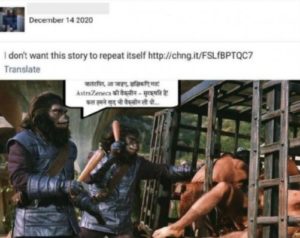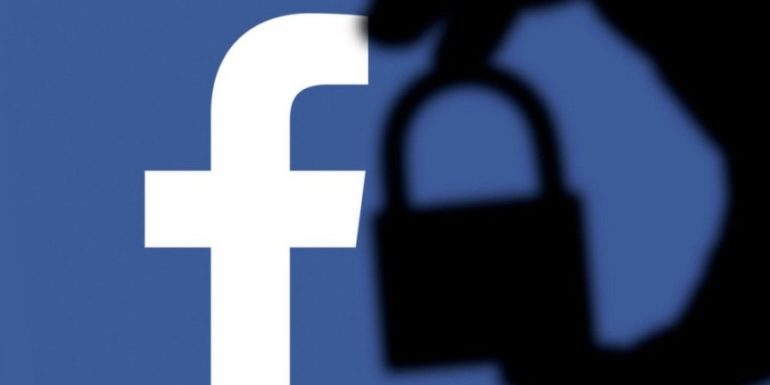Facebook announced yesterday, Tuesday, that it had closed hundreds of accounts that spread false information about coronavirus vaccines.
The leading social networking site described the network of accounts coming from Russia as "misinformation laundering" and trying to "recruit" influencers to spread fake news about the Covid-19 vaccines. It mainly targeted users with a "pure reputation" in India, Latin America and the USA.
The misinformation campaign, according to a Facebook report, was carried out by marketing company Fazze, which is part of a Russian company called AdNow.
Last month a BBC Trending investigation reported that in May Fazze offered money to Influencer to spread false claims about the risks associated with the Pfizer vaccine. He had tried the same with the AstraZeneca vaccine, spreading the word that he was using a modified adenovirus chimpanzee.
Posts from accounts on the network spread memes that used images from the "Planet of the Apes" movies to give the impression that the vaccine would turn humans into monkeys.

These posts appeared on Facebook in Hindi at about the same time that the Indian government was discussing emergency approval for the AstraZeneca vaccine.
The campaign used fake accounts, some of which Facebook says may have come from servers in Bangladesh and Pakistan.
Facebook announced in July that it had removed 65 of its accounts and 243 Instagram accounts linked to the anti-vaccination campaign and banned Fazze from its platform for violating their foreign policy.
"It really is a warning - be careful when someone tries to feed you a story. Do your own research, "said Ben Nimo, head of Facebook's global threat, as he briefed reporters.
The campaign took advantage of online platforms such as Reddit, Medium, Change.org and Facebook, creating misleading articles and reports, then providing influencers with links, hashtags and more to spread vaccine misinformation, according to with Nimos, who noted that "in fact, this anti-vaccine campaign worked as a misinformation laundering."
The anti-vaccination campaign fell on deaf ears
The operation was uncovered by Influencers in France and Germany who disputed allegations made in emails by Fazze, prompting journalists to investigate the matter, according to Facebook.
Facebook does not know who hired Fazze for the vaccine campaign, but has shared its findings with regulators, police and cybercrime prosecutors, according to security chief Nathaniel Gleicher.
The campaign appeared to be falling apart, with almost none of the posts on Instagram receiving "likes", Facebook said. The news comes amid a dispute between Facebook and the US government over limiting misinformation about the coronavirus and the government's efforts to mobilize popular social media characters to promote vaccinations.
It is worth noting that following the initiative of Twitter, Google, Facebook and Netflix in the US announced that their employees should be fully vaccinated before returning to the offices of the companies.
